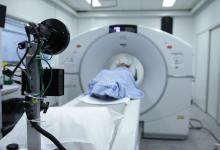Inefficacy of Immunosuppressive Treatments in Systemic Sclerosis with ILD Save

EUSTAR study results published in Arthritis Research & Therapy show the current state of immunosuppressive use in systemic sclerosis patients with interstitial lung disease (SSc-ILD) to be ill-defined, but that liberal use of glucocorticoids (GC) in SSc-ILD should be discouraged.
The EUSTAR study group analyzed 11,496 patients with SSc, of whom 3778 had ILD (33%). Nearly 71% were treated with immunosuppresives (IS) and glucocorticoid (GC) were used by 58% patients. Only 29% had never been treated with IS.
GC were often combined with various DMARDs, including cyclophosphamide (CYC) (11.9%), azathioprine (AZA) (9.2%), methotrexate (MTX) (8.7%), or mycophenolate mofetil (MMF) (7.3%).
Intensive IS (MMF + GC, CYC or CYC + GC) was started in patients with the worst PFTs and ground glass opacifications on imaging.
Patients who received IS where younger, had shorter disease durations, higher Rodnan skin scores, had more diffuse skin disease, more active disease, worse DLCO and FVC values and were more likely to be Scl-70 antibody positive.
No specific types of IS was clearly superior to another in influencing the course of lung function.
Effective therapy for SSc-ILD patients continues to be a significant unmet need.







If you are a health practitioner, you may Login/Register to comment.
Due to the nature of these comment forums, only health practitioners are allowed to comment at this time.